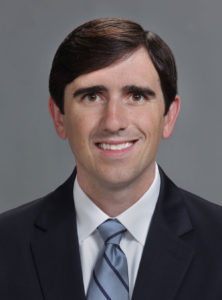Biceps Tenodesis Surgeon

Are you an athlete who participates in sports that involve throwing overhead? If so, you may be at risk of developing an injury to the biceps. Biceps tenodesis specialist, Dr. Robert Boykin provides diagnosis and both surgical and nonsurgical treatment options for patients in Asheville who have sustained a biceps tendon injury. Contact Dr. Boykin’s team today!
What is Biceps Tendonitis?
Biceps tendonitis is a condition of inflammation of the biceps tendon that causes pain and tenderness on the front of the shoulder to those who suffer from it. The biceps is responsible for elbow flexion, as well as the ability to rotate the forearm. It is located on the upper arm between the shoulder and the elbow and includes two distinct muscle “bellies” know as the long head of the biceps and the short head of the biceps. The long head of the biceps attaches to the shoulder blade inside the shoulder joint through a tendon. This area of the tendon is susceptible to damage and is often injured, either in isolation or in conjunction with other shoulder problems.
One common injury that can affect this area is tendonitis. Tendonitis occurs when the long head of the biceps tendon becomes irritated, either through acute episodes of overuse or chronic micro-damage from repetitive overhead activities. Degenerative changes in the shoulder joint can also lead to injuries such as tendonitis. Tendonitis is commonly seen with partial tears of the biceps tendon in addition to tears of the rotator cuff tendons. Shoulder specialists Dr. Robert Boykin treats patients in Asheville, Arden, Fletcher and surrounding North Carolina communities who are suffering from biceps tendonitis pain.
How to Diagnose Biceps Tendonitis?
Dr. Boykin will assess the biceps muscle and use imaging studies to evaluate the exact cause and location of the tendonitis. He will often try to treat biceps tendonitis through non-operative measures first, which involve resting the arm (possibly by use of a sling), applying ice, taking anti-inflammatory medications, and attending physical therapy. However, if biceps tendonitis causes extreme pain and disability without response to initial treatment, surgical intervention may be required.
Am I a Candidate for Biceps Tenodesis?
If Dr. Boykin feels that a surgical procedure is needed, he will most likely perform a biceps tenodesis (removing the diseased portion of the tendon and reattaching healthy tendon to a more secure location in the upper arm). During this operation, a release of the tendon from its attachment inside the shoulder joint is first performed arthroscopically using a camera and specialized surgical instruments. Next, a small cosmetic incision is created in the armpit and the biceps tendon is pulled out through this incision. The area of diseased and inflamed tendon is removed and strong sutures are placed in the healthy tendon. A special screw (called an interference screw) is then used to secure the tendon back to bone. This procedure has been shown to be highly successful in relieving the pain caused by biceps tendonitis and tearing. The type of fixation used (interference screw) has also been proven to be highly stable.
Recovery Following Biceps Tenodesis
Following surgery, physical therapy will begin. Each case will be slightly different and Dr. Boykin will prescribe a rehabilitation program that best helps each patient progress in a natural, healthy manner. The ultimate goal is to regain range of motion and strength. Research has demonstrated that there is no change in the biomechanics of the shoulder after this procedure, allowing patients to maintain their strength and return to activities. Depending on the severity of the injury and surgical case, range of motion can usually begin immediately or shortly after surgery. Resisted elbow flexion is prohibited for 6 weeks and a full recovery can be anticipated at approximately 3 months.
For additional resources on biceps injuries, including biceps tendonitis, or to learn more about the surgical treatments for this injury including a biceps tenodesis, please contact the office of orthopedic shoulder surgeon, Dr. Robert Boykin who serves patients in Asheville, Arden, Fletcher and surrounding North Carolina communities.
